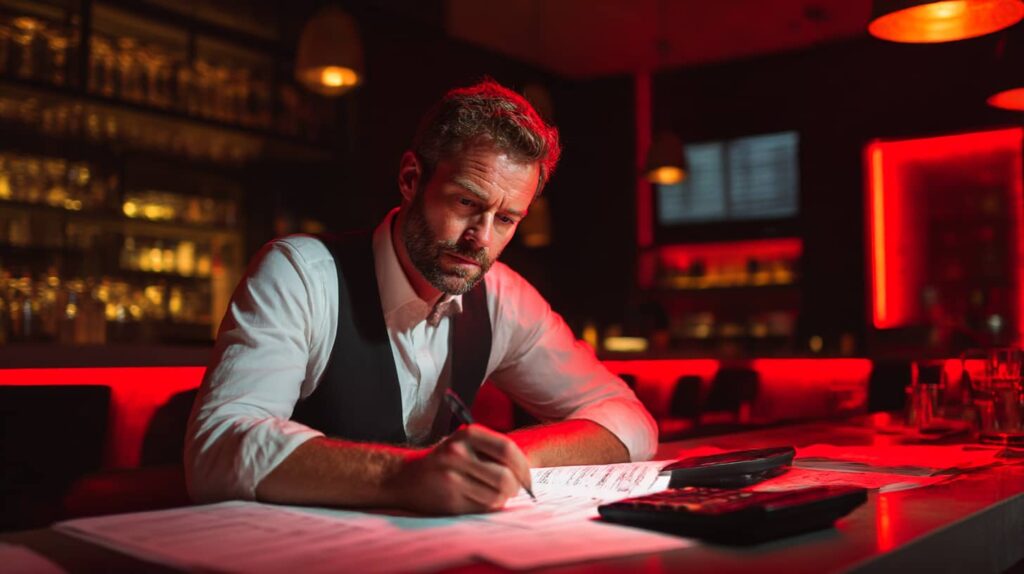One-off payment or monthly instalment? The decision torments every caterer: buy or rent a cocktail machine? Whilst one swears "ownership obliges", the other argues "flexibility wins". Both are right - and both are wrong.
The truth lies in the details that nobody has on their screen.
The buy faction: "Everything is mine!"
Typical buyer arguments:
- "After a few years, the machine is mine"
- "No more monthly charges"
- "I can do what I want"
- "More favourable in the long term"
A restaurant owner from Cologne tells us: "I bought my cocktail machine outright. After four years, I had recouped the money through savings. Now it's been running practically for free for two years."
The Rental Group: "Flexibility above all else!"
Typical arguments of tenants:
- "No risk in the event of defects"
- "Always the latest technology"
- "Tax advantages"
- "Liquidity remains intact"
An event organiser from Hamburg counters: "I rent my systems. In return, I get service, updates and can switch at any time. That's worth the flexibility to me."
The hidden costs of the purchase
What buyers often overlook:
Maintenance costs: Substantial annual follow-up costs "The machine is mine, but the technician call still costs money."
Technology decay: The system is outdated after a few years "My machine can't do app integration or cloud updates."
Default risk: In the event of a total loss, the entire investment is gone "After water damage, my investment was gone."
Opportunity costs: Tied-up capital does not generate a return "I would have been better off investing the money in marketing."
The hidden advantages of renting
What tenants often don't realise:
Tax optimisation: Rent is fully deductible "The monthly rent significantly reduces my tax burden."
Upgrade guarantee: Latest technology every 2-3 years "I always drive the latest model, at no extra cost."
All-round carefree: Maintenance, repair, replacement included "Defective? Just give us a call, a new machine will arrive the next day."
Conserving cash flow: Liquidity for other investments "I used the deposit I saved to extend my terrace."
Full cost accounting over several years
Scenario: Restaurant with strong cocktail business
Purchase option:
- Acquisition: High one-off investment
- Maintenance: Continuous follow-up costs
- Repairs: Unplannable additional costs
- Technology updates: Further investment required
Rental option:
- Monthly instalments: Plannable costs
- Maintenance: Included
- Repairs: Included
- Updates: Included
In many cases, the full cost calculation shows clear advantages for the rental model
When to buy, when to rent?
Buying makes sense with:
- Established restaurants with a stable cocktail business
- Sufficient liquidity for acquisition and maintenance
- Long-term location planning
- Own technical expertise in the team
Renting makes sense for:
- Start-ups and new catering concepts
- Uncertain business development
- Changing locations or event business
- Focus on liquidity for other investments
The hybrid solution: Rent-to-Buy
The new trend combines both worlds:
Monthly rent with purchase option after a certain period. Rents already paid will be credited.
Advantages:
- Risk-free test phase
- Later purchase decision possible
- Offsetting of rental costs
- Flexibility in the initial phase
Tax optimisation
Buy:
- Amortisation over several years
- Tax savings through depreciation
Rent:
- Fully deductible as a business expense
- Immediate tax effect
- Often higher annual tax savings
The industry differences
Hotels: Majority rents (changing concepts, chain standards) Restaurants: Mixed picture (long-term concepts) Event caterer: Mainly rent (flexibility is crucial) Bars/Clubs: Tendency to buy (high utilisation intensity)
Psychological factors
Illusion of ownership: "Mine feels better" Scientifically proven, but often economically irrational.
Illusion of control: "I decide on maintenance myself" Reality: Professional service is always better.
Liquidity underestimation: "I prefer to pay once" Overlooks loss of flexibility in the event of unforeseen events.
The surprising conclusion
Many cases: Renting is economically superior Emotional level: Buying feels better Pragmatic solution:Rent-to-Buy combines both advantages
A management consultant from Munich summarises: "Renting is the better choice in most cases. But Germans still like to buy. Rent-to-buy is the perfect compromise."
Making the right decision
Analyse honestly:
- Your liquidity situation
- Your willingness to take risks
- Your long-term plans
- Your tax situation
The decision: Calculate honestly, decide rationally, but don't forget your gut feeling.
What counts in the end is not who owns the machine - but that it works optimally for your business.
